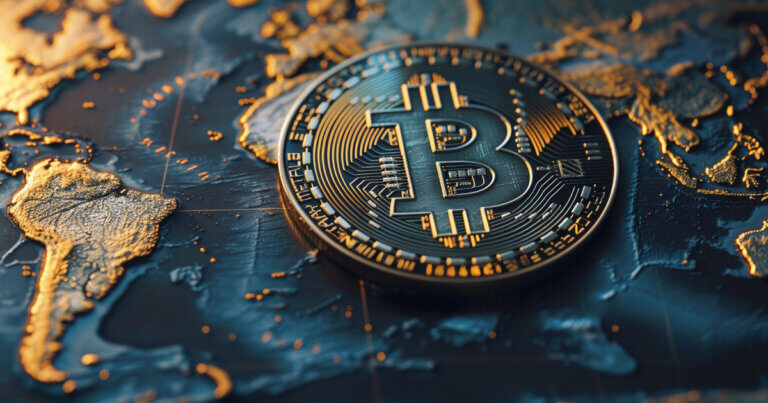 CSAO region becomes global crypto hub with India, Singapore, and Indonesia leading the charge – Chainalysis
CSAO region becomes global crypto hub with India, Singapore, and Indonesia leading the charge – Chainalysis CSAO region becomes global crypto hub with India, Singapore, and Indonesia leading the charge – Chainalysis
India, Singapore, and Indonesia are transforming the crypto landscape with strong adoption, innovative payment solutions, and explosive trading activity.

Cover art/illustration via CryptoSlate. Image includes combined content which may include AI-generated content.
The Central and Southern Asia and Oceania (CSAO) region accounted for $750 billion in crypto inflows between July 2023 and June 2024, making it one of the largest crypto markets globally.
According to Chainalysis’ 2024 Geography of Cryptocurrency report, the region represents 16.6% of global crypto value received, ranking behind only North America and Western Europe.
India maintains adoption lead
India ranked first on Chainalysis’ Global Adoption Index and second in the Central and Southern Asia and Oceania (CSAO) region in terms of crypto value received, with inflows exceeding $157 billion between July 2023 and June 2024.
Chainalysis noted that India’s crypto activity persists despite several regulatory challenges, including a 30% capital gains tax and a 1% transaction tax.
Meanwhile, the Financial Intelligence Unit (FIU) blocked several offshore exchanges in 2023, citing non-compliance with anti-money laundering laws. However, Indian users continued to access these platforms through alternative methods.
Further regulatory engagement between the government and the crypto industry has begun to pave the way for a more sustainable ecosystem. Binance’s seven-month ban was recently lifted after the exchange registered as a reporting entity in India, signaling potential opportunities for offshore exchanges to re-enter the market.
These changes reflect India’s evolving stance on digital assets and hint at a more collaborative approach to regulating crypto in the coming years.
Singapore trailblazing crypto payments
Singapore has emerged as a trailblazer for crypto payments and is quickly becoming a hub for the industry. Traditionally known for its institutionally-driven crypto activity, the country is now seeing a surge in retail and professional investor participation, the report said.
The rise in crypto payments has been substantial. In the second quarter of 2024, the total value of crypto transactions conducted through merchant services in Singapore neared $1 billion — a significant leap from previous quarters.
Year-over-year growth in transaction sizes has been especially pronounced in the retail sector, driven in part by regulatory clarity and consumer protection initiatives introduced by the Monetary Authority of Singapore (MAS).
According to the report, the country’s progressive regulatory environment has played a key role in driving this shift. In August 2023, MAS finalized its stablecoin regulatory framework, laying out new requirements for issuers and guidelines for customer asset protection.
The clarity provided by these measures has bolstered confidence in the use of stablecoins for both retail and institutional purposes, positioning Singapore as a leader in digital asset regulation.
Indonesia leads in trading, DeFi activity
Meanwhile, Indonesia stood out in the CSAO region for its explosive growth in cryptocurrency trading, with year-over-year growth reaching nearly 200%. As the largest crypto market in the region in terms of total value received, Indonesia is attracting investors who view crypto as a speculative financial instrument with the potential for rapid gains.
The report highlighted that more than a third of the value received by local exchanges comes from transactions between $10,000 and $1 million, indicating substantial professional trading activity.
Much of Indonesia’s crypto trading activity is driven by the country’s young population, with Millennials and Gen Z comprising more than 50% of its investor base. Additionally, recent regulatory measures that have made it harder to access traditional markets have pushed Indonesians toward alternative assets like crypto.
In addition to trading, Indonesia has emerged as a hotspot for decentralized finance (DeFi) and decentralized exchanges (DEX). The country’s Web3 market has shown notable growth, with higher-than-average participation in yield farming, staking, and other DeFi activities compared to the global average.
The rise of the “crypto degen” community in Indonesia, which is made up of young, tech-savvy investors seeking out high-risk, high-reward DeFi opportunities, has played a major role in driving this trend.













































































































